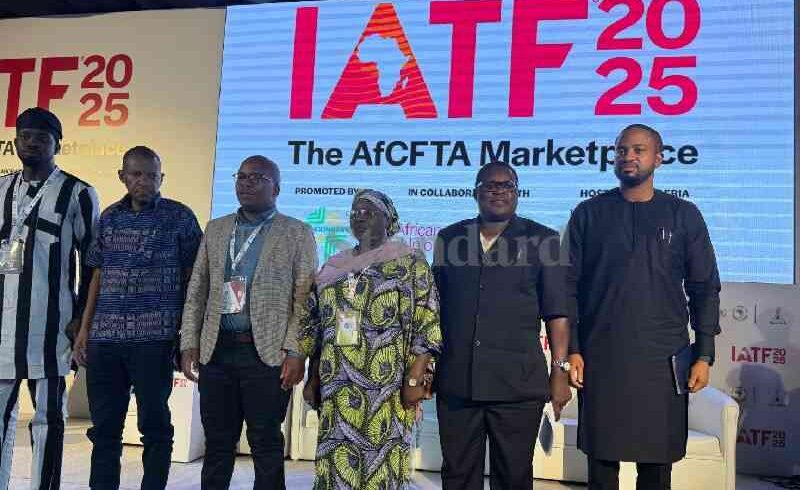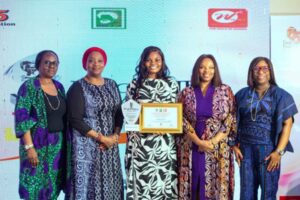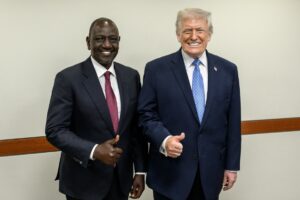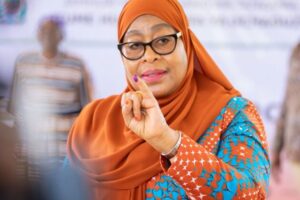
Bungoma Governor Kenneth Lusaka and his Taita Taveta counterpart Andrew Mwadime join delegates at the 5th African Sub-Sovereign Governments Network (AfSNET) conference. [Brian Ngugi, Standard]
Kenyan governors took centre stage at a major African investment forum on Saturday, making a direct pitch to international financiers for local mega-projects they say are crucial for unlocking economic growth and reducing the continent’s reliance on foreign aid.
Bungoma Governor Kenneth Lusaka, who is also Vice-Chairman of the 14-county Lake Region Economic Bloc (LREB), told delegates at the 5th African Sub-Sovereign Governments Network (AfSNET) conference that strategic investment in regional infrastructure and industrialisation was key to sustainable development.
“Africa’s economic renaissance is hinged on unbridling the developmental capacity of local governments and increasing decentralization,” Lusaka said, emphasizing that the LREB was formed to “bring together all available resources, identify opportunities and to take an integrated approach” to improve quality of life in the western Kenya region.
His appeal was echoed by Taita Taveta Governor Andrew Mwadime, who highlighted similar investment-ready projects in Kenya’s coastal region, underscoring a coordinated push by sub-national leaders to attract capital directly for region-specific development.
Follow The Standard
channel
on WhatsApp
The governors’ presence at the Afreximbank-organized forum signals a shift toward more assertive sub-sovereign engagement with global capital markets, bypassing often complex national-level funding processes.
“Despite the gains made in decentralization, the Lake Region Economic Bloc just as most African local governments still have low administrative and fiscal capacity to realize the much-needed local economic development,” Lusaka acknowledged, pinpointing a key challenge for potential investors.
The conference, held alongside the Intra-African Trade Fair (IATF2025), served as a marketplace for regional leaders to connect with private sector players and development finance institutions. Lusaka specifically called for strengthened planning policies, enhanced human resources, and embrace of digital economy to drive growth.
“The present-day crisis in most sub-sovereign Governments is joblessness. This leads to rise in crimes and other social ills,” he stated, directly linking economic investment to social stability.
Both governors emphasized that achieving transformative growth requires a “multifaceted approach, focusing on infrastructure development, innovation, good governance, industrialisation, education, and regional integration.”
Their coordinated pitch highlighted a continent-wide trend of sub-national governments positioning themselves as credible investment destinations, betting that local mega-projects can deliver tangible returns and shared prosperity while addressing Africa’s youth employment challenge.
Governor Lusaka challenged African leaders and private sector delegates to fast-track the liberalization of continental air routes, stating it “does not make sense that to connect between African capitals, one must first travel through Europe.” He emphasized that opening skies would dramatically reduce trade costs, enhance regional integration, and strengthen supply chains under the African Continental Free Trade Area (AfCFTA).
Echoing the urgency for concrete action, Taita Taveta Governor Andrew Mwadime declared, “It is time for action—African leaders have talked too much.”
He highlighted specific investment opportunities in his region, noting that “the Coast province, and especially Taita Taveta, presents numerous untapped opportunities for regional investors, including modernizing livestock development through abattoirs and expanding high-value agriculture such as macadamia production.”
Mwadime emphasized that such sectors are ripe for investment and align directly with broader goals of regional food security and export-led growth.
Among the flagship projects presented by Governor Lusaka was a proposed $500 million Lake Region Solar Energy Park, designed to provide sustainable power across the 14-county bloc and reduce dependency on the national grid.
Stay informed. Subscribe to our newsletter
Additionally, he highlighted the Lake Region Inter-County Railway Network, a major infrastructure initiative aimed at optimizing logistics, connecting agricultural heartlands to urban markets, and lowering the cost of movement of goods and people.
“These projects are more than infrastructure—they are enablers of trade, productivity and shared prosperity,” Lusaka stated, noting that both projects are structured to attract private investment through public-private partnerships and are aligned with Kenya’s broader development goals and the AfCFTA framework.
Governor Mwadime praised Nigerian sub-national leaders for their innovative approaches to investment and governance, noting that “Kenyan leaders have much to learn from their African counterparts.”
He highlighted Nigeria’s experience in special economic zones and sub-sovereign reforms as particularly instructive.
At the same time, he pointed to Kenya’s decade-long devolution journey as a potential model, adding that “African counterparts can also learn from Kenya’s devolution system, which has brought government closer to the people and created new centers of economic planning and service delivery.”
This mutual learning, he argued, is key to accelerating development and avoiding past mistakes.
Follow The Standard
channel
on WhatsApp





